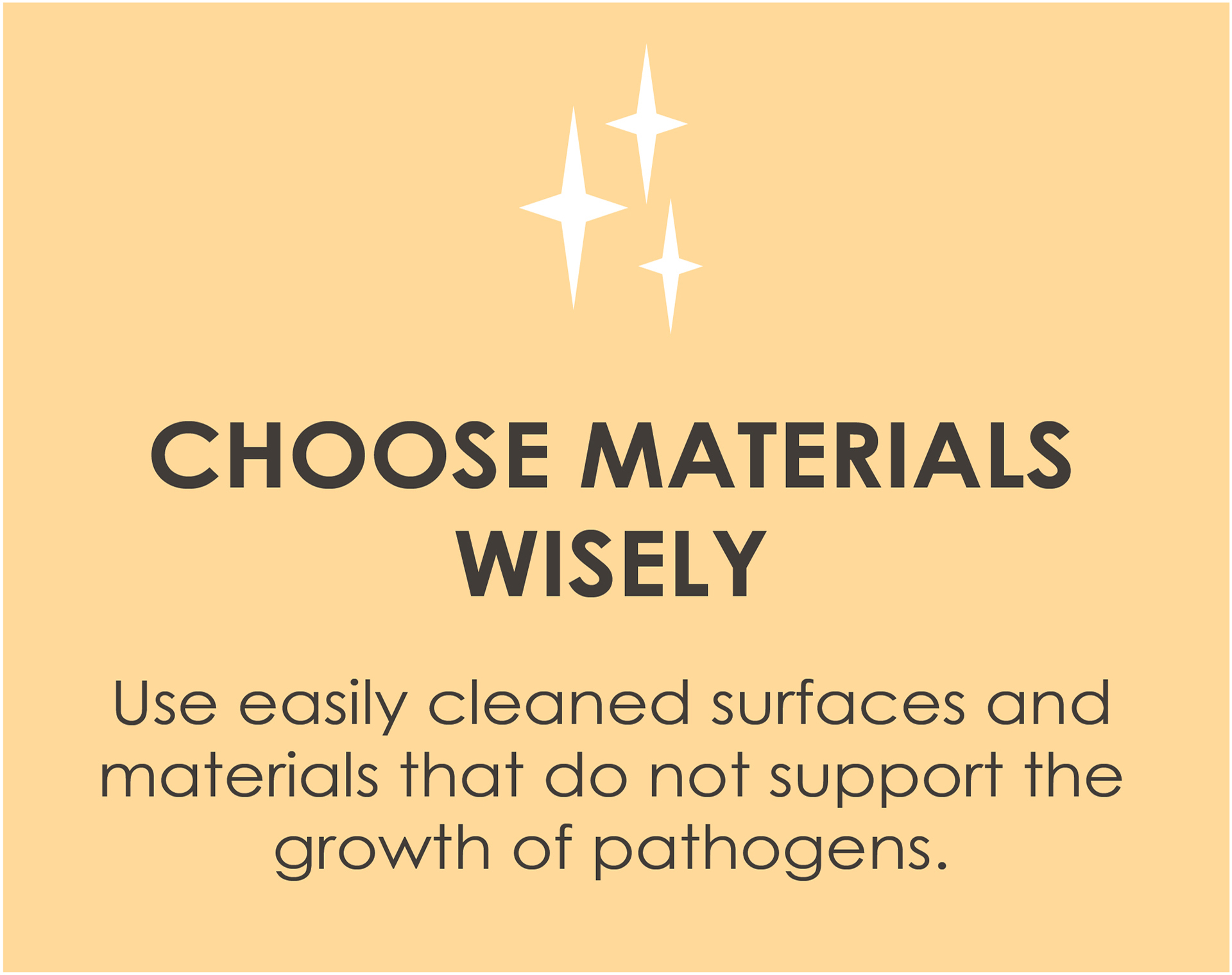
Use easily cleaned surfaces and materials that do not support the growth of pathogens.
- Consider using nonporous countertops such as solid surface with as few seams as possible at highly-utilized, shared spaces.
- Use disposables for menus and other high-touch items that would otherwise be difficult to clean.
- Use disposable desk mats and placemats for easy protection of shared surfaces.
- Consider using epoxy paint behind wall-mounted sanitizer dispensers to protect the surface from the liquid sanitizer.
- Consider increasing the gloss level of paint at highly-touched surfaces to improve ease of cleaning.
- Consider using a non-porous, easy-to-clean epoxy grout to reduce the possibility of the grout housing pathogens at wall tile locations.
- Approach the use of antimicrobial materials/chemicals in building materials with caution.
- For furniture, consider prioritizing the use of materials that are easily cleaned, or consider using polyurethane fabric slip covers on task chair backs for ease of cleaning.
- Review and select materials with an understanding of recommended cleaning practices and chemical resistance to allow for operational efficiency.

